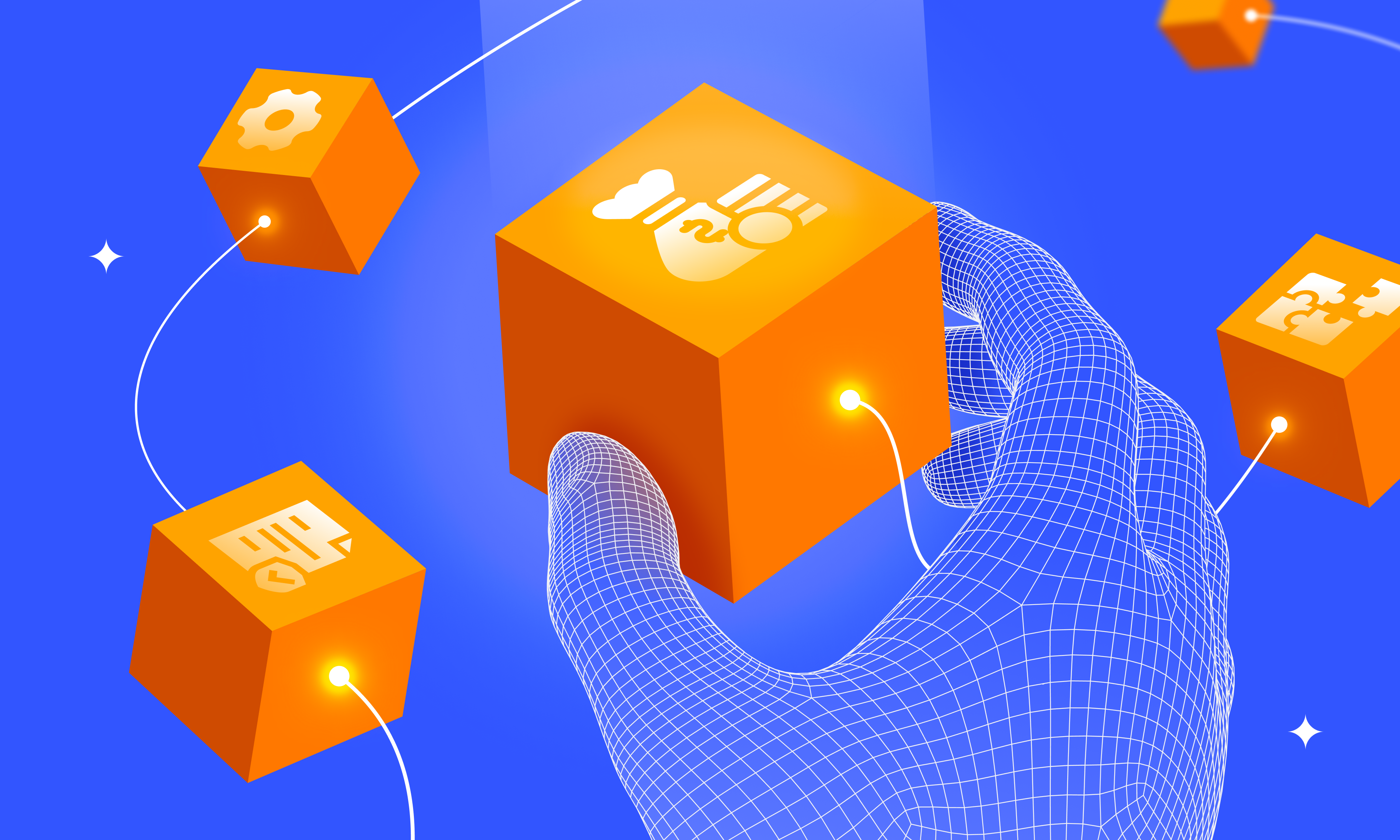
In 2022, Web3 startups raised a staggering $26.7 billion in funding, being one of the most active investment sectors of the year.
That being said, building a Web3 startup presents a unique set of challenges that should be considered before launching. Given the ever-changing Web3 market, regulatory uncertainty, and technical complexities of a Web3 solution, the obstacles faced by Web3 startups go beyond those encountered by traditional startups.
In this article, we will discuss five potential challenges that, when understood, can help you build a successful Web3 startup capable of scaling and adapting to market conditions.
Challenge #1: Finding a Product-Market Fit
Determining the appropriate market sector for your startup can be challenging for several reasons. Firstly, the Web3 ecosystem is still in its early stages, meaning many potential use cases have yet to be fully explored. As a founder, you might not fully comprehend the future possibilities of your product, making it difficult to identify a clear market need or demand for your Web3 offering.
Secondly, it’s crucial to consider whether users are prepared for your Web3 solution. As Web3 is a relatively new concept, people are still learning how to adopt these technologies. If your solution is too complex for non-tech-savvy users, most of them will be unable to use it, simply because they’re not ready.
No market demand = no market fit.
Lastly, defining the level of competition in your specific Web3 niche is challenging. In addition to competing with similar Web3 solutions, you must remember that there is always competition from traditional centralized players.
All of these factors make it difficult for both Web3 startups and investors to truly understand the market potential and challenges of your solution.
Challenge #2. Web3 Regulation and Compliance
The regulatory landscape for blockchain and cryptocurrencies is still developing, with various countries adopting different approaches. As a result, the Web3 regulatory environment becomes fragmented and unstable. Consequently, Web3 startups need to continuously monitor and adapt to changing regulations, leading to several potential regulatory issues.
These include:
- Regulatory risks
As Web3 regulatory standards continue to evolve, changes may adversely impact a Web3 startup’s business model in the future, limiting its scope of operations or even banning them outright. - Cross-border operations
One of the main advantages of a Web3 solution is its global accessibility. However, this also entails compliance with multiple international jurisdictions. Navigating the different rules and requirements can be challenging, time-consuming, and costly, particularly for early-stage startups with limited resources. - Anti-money laundering (AML) and Know Your Customer (KYC) requirements
Many countries impose strict AML and KYC rules on businesses dealing with digital assets to ensure the security of a Web3 project. This regulatory challenge is both technically and resource-intensive. - Licensing issues
In some jurisdictions, Web3 startups need to obtain specific licenses to operate legally. This process can be lengthy and costly. - Legal costs and resources
Ensuring compliance with regulations often requires significant legal expertise and resources. This can be a major challenge for early-stage startups, which may lack the funds to hire in-house counsel or engage external legal advisors.
Challenge #3. Web3 Product’s Technical Complexity

As with any other tech solution, choosing the right technology stack for a Web3 product is crucial. Depending on the underlying Web3 technology, your solution may possess inherent security vulnerabilities, offer sufficient scalability to integrate with other products and grow, and experience varying transaction times, among other factors.
Moreover, in Web3, the technical implementation of your solution becomes even more complex due to:
- Rapid evolution: Web3 is constantly evolving, with new chains, protocols, and platforms emerging every month. This contributes to Web3’s fragmentation and requires developers to quickly learn new technologies.
- Lack of interoperability: Currently, the Web3 landscape is not interoperable. Composed of various blockchain networks and protocols, the Web3 ecosystem does not offer default possibilities for direct communication between different technologies. Ensuring seamless interaction and data exchange between these disparate systems is one of Web3’s pressing challenges.
- Scarcity of experienced developers: Since decentralized technologies are still young and evolving, it can be difficult to find developers with a deep understanding of the Web3 tech stack and solid experience in building decentralized solutions.
Another crucial factor that influences a Web3 solution’s technical complexity is ensuring its security and privacy. Web3 startups must anticipate and address security vulnerabilities, implement robust security measures, undergo security audits, and maintain transparency about data handling practices to gain users’ trust.
Challenge #4. Raising Funds
Raising capital for Web3 startups comes with both advantages and disadvantages. On the one hand, Web3 startups can enjoy access to a broader range of VC tools and platforms (check out this article to learn more). However, investors, especially traditional ones, may find investing in a Web3 startup challenging for several reasons:
- Limited understanding of Web3 technology
Many traditional investors may not be familiar with the intricacies of Web3 or blockchain. This lack of knowledge can make it difficult for them to accurately assess the potential of a Web3 startup. - High risks
Web3 startups are often perceived as high-risk investments due to the emerging nature of the technology, regulatory uncertainty, and concerns about security and scalability. - Market volatility
The cryptocurrency market is known for its volatility, which can affect an investor’s confidence in a Web3 startup’s business model and its future financial stability. - Reliance on token sales
Many Web3 startups rely on ICOs (Initial Coin Offerings), ITOs (Initial Token Offerings), and STOs (Security Token Offerings) to raise funds. However, regulatory scrutiny and a history of scams in these spaces have led to increased skepticism from investors and stricter regulations, making this fundraising method less viable for some startups. - Token economics and valuation
Assessing the value of a Web3 startup can be complex, as it often involves understanding token economics and the potential value of the platform’s native token. This complexity can make it difficult for investors to accurately evaluate a Web3 startup and decide whether to invest.
Additionally, given the rapid pace of technological development in Web3, some investors may be concerned about the long-term growth prospects of a Web3 startup whose economics they may not fully understand.
Challenge #5. User Base Growth
Developing a critical mass of users is essential for a Web3 startup to succeed. Web3 projects build communities around them to grow their user base, explain how to use the project, and motivate people to interact with the solution within their community, ultimately contributing to the project’s growth.
However, this can create a chicken-and-egg problem: attracting users requires a compelling value proposition, but that value may only become apparent as the network grows.
In many cases, users’ loyalty and adoption of a Web3 product depend on its user-friendliness and ease of use. Web3 solutions often involve using crypto wallets, managing private keys, and interacting with external dApps.
Creating a user-friendly and intuitive interface can be technically challenging.
Furthermore, since the concepts of decentralization, cryptocurrencies, and blockchain are difficult for the average user to grasp, a solution that is too complicated for non-tech-savvy individuals may simply push them away from using it, even if you offer enticing incentives.
The Bottom Line
Building a successful Web3 startup comes with a unique set of challenges that founders must overcome. From finding a product-market fit and dealing with regulatory hurdles to addressing technical intricacies, securing funding, and fostering a dedicated user base – all this is critical for a Web3 startup to survive.
That said, the immense potential and growth in the Web3 sector make it a worthwhile pursuit for innovative entrepreneurs. By effectively addressing these challenges, Web3 startups can position themselves for long-term success and drive the evolution of the decentralized Web.
Note: This article is not a complete set of risks that a Web3 startup should consider before launch. We encourage you to contact us for more info from our expert team or recommend that you consult with another professional advisor.




